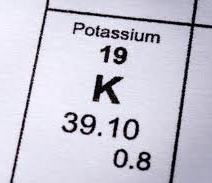March 15th, 2011 by PJSkerrett in Health Tips, News
No Comments »

 One of the most abundant substances in the cloud of radioactive steam released by a failing nuclear power plant is iodine-131 — a radioactive form of the element iodine that is found throughout nature. Iodine-131 poses a special health risk because of its cancer-causing effect on the thyroid gland.
One of the most abundant substances in the cloud of radioactive steam released by a failing nuclear power plant is iodine-131 — a radioactive form of the element iodine that is found throughout nature. Iodine-131 poses a special health risk because of its cancer-causing effect on the thyroid gland.
The small, butterfly-shaped thyroid sits just below the voice box. From this perch, it controls how fast every cell in the body changes food into energy. The gland’s main product, thyroid hormone, governs the function of the digestive tract, brain, heart, nerves, muscles, bones, skin, and more.
Iodine is a key ingredient that goes into making thyroid hormone. We get this element from ocean-caught or ocean-farmed fish and shellfish, milk, cheese, yogurt, eggs, and fruits and vegetables grown in iodine-rich soil.
The human body is surprisingly good at absorbing iodine and storing it in the thyroid gland. That’s a problem when iodine-131 is released into the atmosphere. The thyroid stores it as readily as natural, non-radioactive iodine. As iodine-131 builds up in the thyroid gland, it emits bursts of radiation that can damage DNA and other genetic material. Such damage can remove the normal limits to cell growth and division. Unchecked growth of thyroid tissue is thyroid cancer.
Iodine-131 gets into the body several ways. A person can breathe in radioactive steam released by a nuclear power plant. Fallout — radioactive particles that fall out of the atmosphere and settle onto plants, soil, and water — further adds to the burden when a person eats iodine-131 enriched fruits and vegetables or drinks water containing the isotope. Milk is another vehicle — cows that eat grass sprinkled with iodine-131 make milk that contains it. Read more »
*This blog post was originally published at Harvard Health Blog*
March 4th, 2011 by Toni Brayer, M.D. in Health Tips, Research
No Comments »

 There are few medical conditions that people fear more than a stroke. We know that blood pressure control and lowering cholesterol levels reduces stroke risk. Now, thanks to a huge analysis from Italy published in the Journal of the American College of Cardiology, we know that higher dietary consumption of potassium is associated with lower rates of stroke and could also reduce the risk of coronary heart disease and total cardiovascular disease, too. What is even more remarkable is that the results apply to all parts of society and not just to specific “at-risk” subgroups.
There are few medical conditions that people fear more than a stroke. We know that blood pressure control and lowering cholesterol levels reduces stroke risk. Now, thanks to a huge analysis from Italy published in the Journal of the American College of Cardiology, we know that higher dietary consumption of potassium is associated with lower rates of stroke and could also reduce the risk of coronary heart disease and total cardiovascular disease, too. What is even more remarkable is that the results apply to all parts of society and not just to specific “at-risk” subgroups.
Most doctors aren’t even aware of how important it is to eat potassium-rich foods. And what are these foods that have potassium? Surprise: It’s fruits and vegetables like bananas, tomatoes, oranges, apricots, most legumes, spinach, winter squash, avocado, kiwi, and cantaloupe. Actually, almost all fruits and veggies have moderate to high potassium content.
The researchers looked a number of well-done studies that included 247, 510 participants over age 30 and found that those patients with the higher potassium intake reduced their stroke risk by 21 percent. The Italian doctors say the protective effect of potassium against stroke is in part due to its blood pressure lowering effects and also due to other properties of the potassium mineral, such as the inhibition of free radical formation.
I’ve written before about the DASH diet, which also found that reduction of sodium and addition of fruits and vegetables to the diet is an effective way to control blood pressure. The DASH diet is high in potassium.
Think about it: Did you have five servings of fruits and vegetables today? Numerous studies have shown their life-prolonging benefits. This new study just adds to what we already know. I challenge all readers to keep a diet count and make sure you are eating five fruit and vegetable servings a day — every day — to help reduce your risk of stroke, cancer, and heart attack.
*This blog post was originally published at EverythingHealth*
 One of the most abundant substances in the cloud of radioactive steam released by a failing nuclear power plant is iodine-131 — a radioactive form of the element iodine that is found throughout nature. Iodine-131 poses a special health risk because of its cancer-causing effect on the thyroid gland.
One of the most abundant substances in the cloud of radioactive steam released by a failing nuclear power plant is iodine-131 — a radioactive form of the element iodine that is found throughout nature. Iodine-131 poses a special health risk because of its cancer-causing effect on the thyroid gland.












